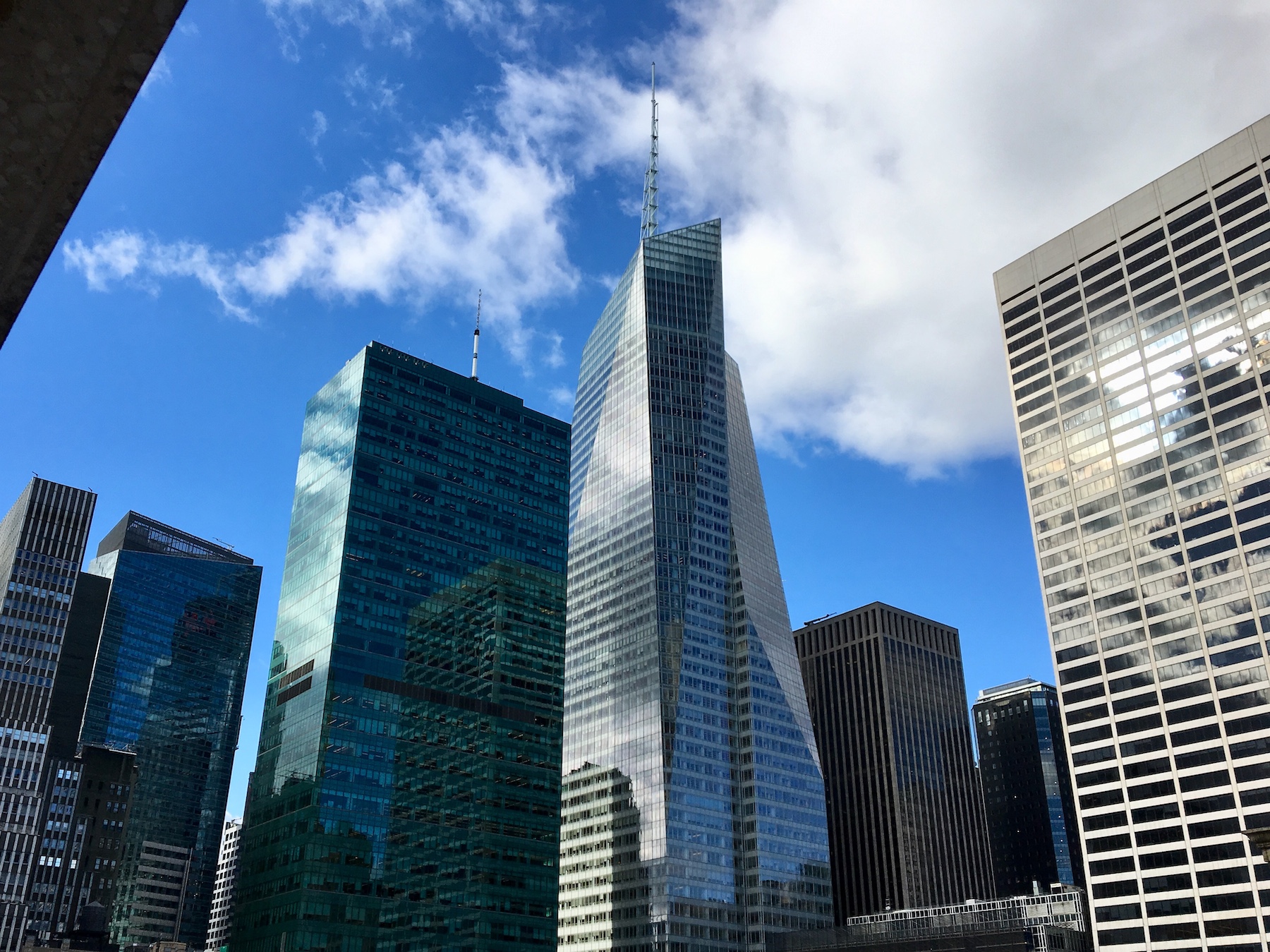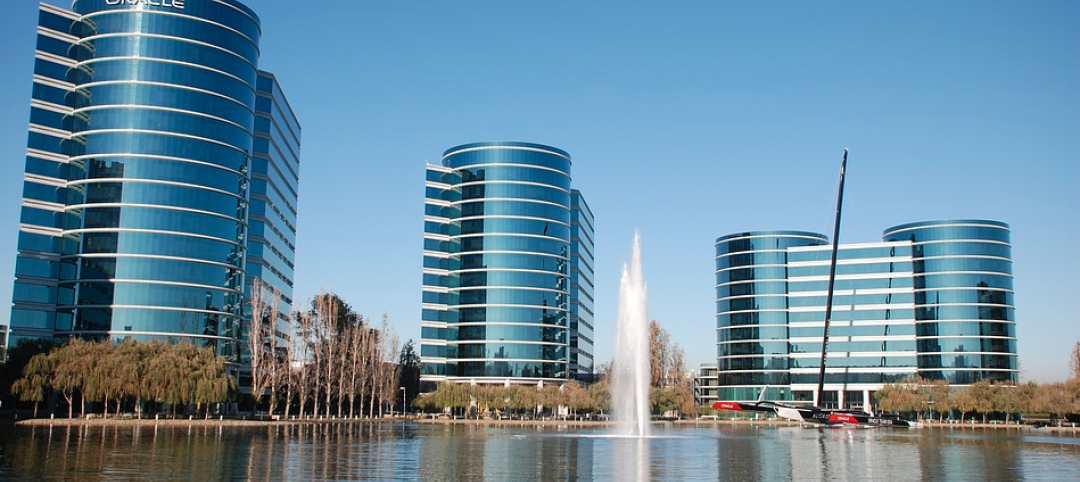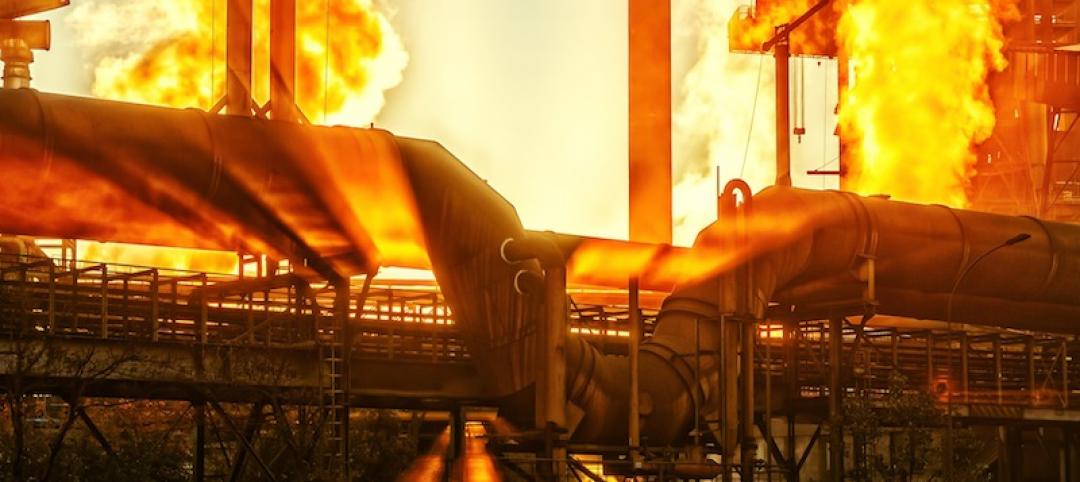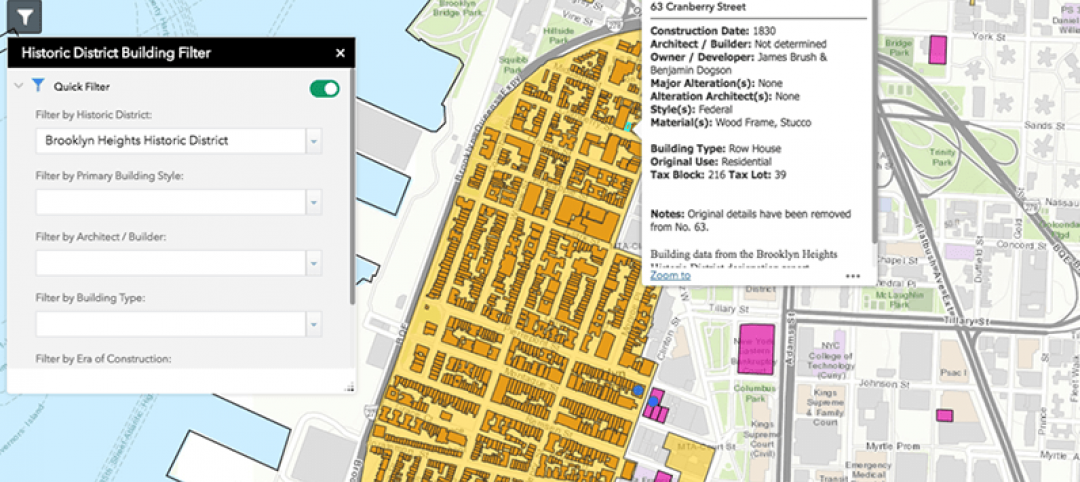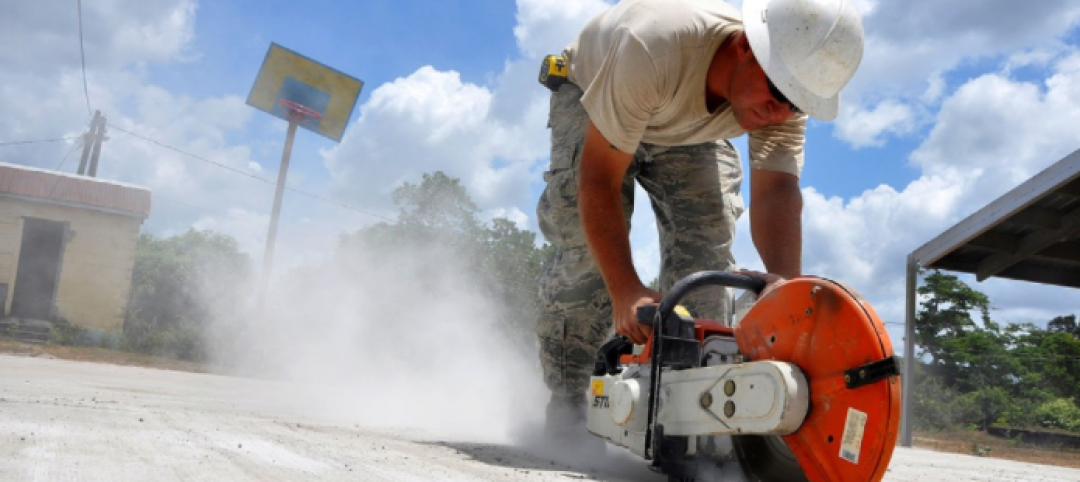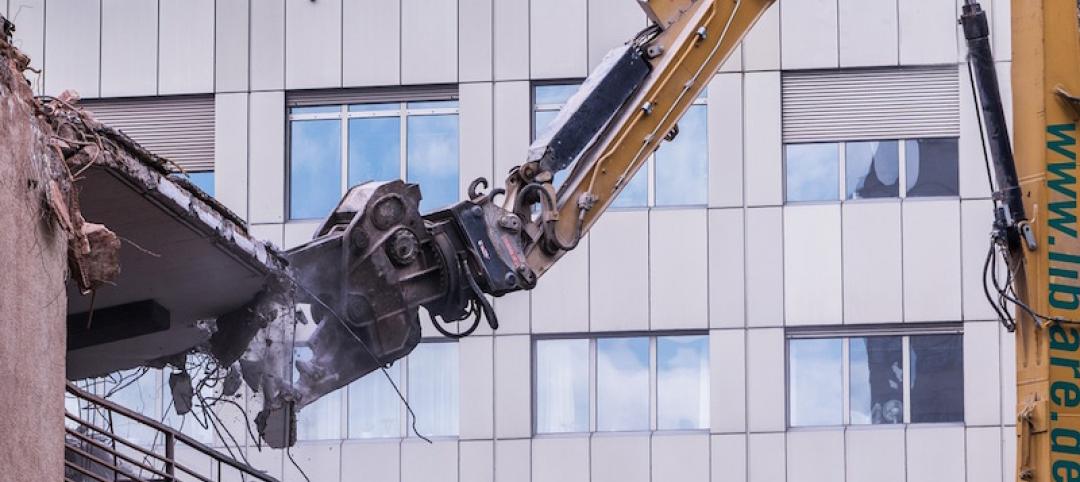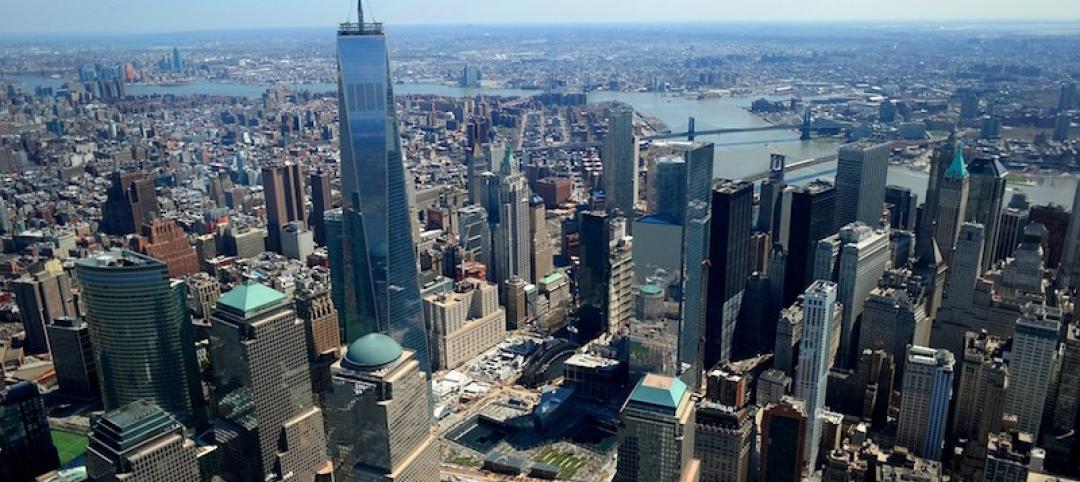One Bryant Park, also known as the Bank of America Tower, in Manhattan faces an estimated $2.4 million in annual fines when New York City’s York’s Local Law 97 goes into effect.
The potential hefty levy on this property is ironic given that it was certified LEED Platinum after it opened in 2010. An in-depth article at Bloomberg.com about this predicament illustrates the complexities owners face in addressing the law, which imposes carbon caps that are backed up by fines for non-compliance.
Passed in 2019, the law is a sweeping measure establishing emissions limits for almost 50,000 of the city’s largest buildings. The owners of an estimated 20% of these office buildings, hotels, and multifamily properties will likely face fines in 2024 when the law goes into effect. Many more buildings would face fines in 2030, when the caps will be lowered by 40%.
Part of the issue for the Bank of America Tower is a density of employees with heavy computer usage—at least on some floors—that use a lot of electricity. The owner says Local Law 97 is deeply flawed because it doesn’t distinguish between different densities and usages of properties and points out that the terms of the lease with the bank preclude him from limiting their power usage.
The Bank of America Tower had some impressive green features when it was built: a natural gas-fueled cogeneration plant for electricity that uses heat from the combustion process for additional power to operate HVAC systems, a cooling system that uses ice made overnight when power demand is lower, and a green roof. Today, when the ultimate goal is carbon neutrality, though, these features do not create the desired impact.
The details of the law are still being worked out, though, and that may bode well for the owner. There is support from some city officials to make allowances for buildings such as the Bank of America Tower that time their energy use.
Related Stories
Codes and Standards | May 30, 2018
Silicon Valley cities considering taxes aimed at large employers
The aim is to offset the impact on housing costs and homelessness by tech companies.
Legislation | Apr 18, 2018
Steel and aluminum tariffs raise more questions than answers for domestic suppliers
Are import quotas and a “Buy American” infrastructure mandate in the cards?
Multifamily Housing | Mar 4, 2018
Katerra, a tech-driven GC, plots ambitious expansion
Investors flock to this vertically integrated startup, which automates its design and construction processes.
Reconstruction & Renovation | Dec 21, 2017
Interactive map includes detailed information on historic New York City buildings
The New York City Landmarks Preservation Commission launched a new, enhanced version of its interactive map, Discover NYC Landmarks.
Codes and Standards | Aug 24, 2017
OSHA silica dust exposure enforcement begins Sept. 23
Vacuum dust collection, water-delivery systems, and respirators will be required.
Market Data | Mar 22, 2017
After a strong year, construction industry anxious about Washington’s proposed policy shifts
Impacts on labor and materials costs at issue, according to latest JLL report.
Reconstruction & Renovation | Mar 16, 2017
Pols are ready to spend $1T on rebuilding America’s infrastructure. But who will pick which projects benefit?
The accounting and consulting firm PwC offers the industrial sector a five-step approach to getting more involved in this process.
Legislation | Sep 8, 2016
Half of U.S. states now allow design-build on public projects
Missouri is the latest to enact design-build legislation.
Legislation | Aug 24, 2016
World Trade Center contractor found guilty of minority-owned business fraud
The company used two minority firms as fronts in a nearly $1 billion scheme.
Legislation | Aug 19, 2016
California lawmakers may take action to address contractor negligence
An assembly committee heard testimony on deadly balcony collapse that occurred last year.


